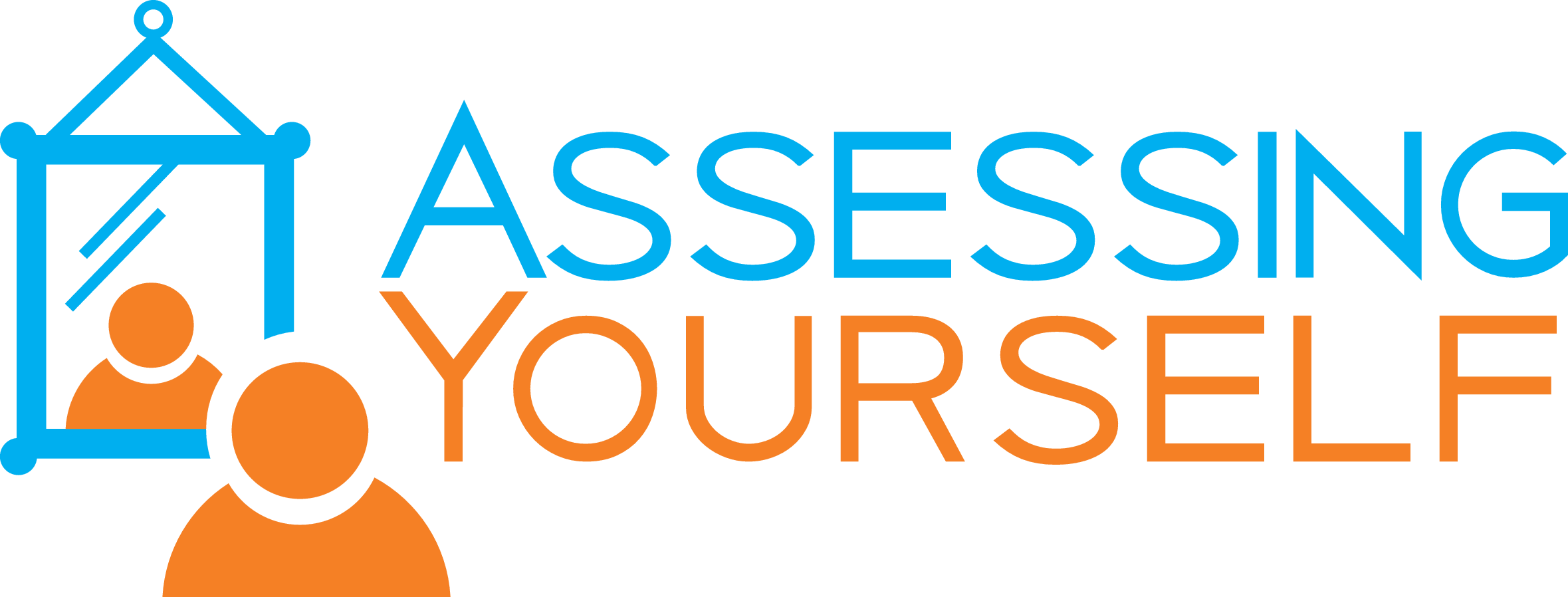Practical tools for spiritual living
Connecting with God
Opportunities and resources for groups
Grow in God and raise money for good
More Information
Try out our websites if you fall into any of the following:
* You believe in God and want to connect with God and reap the benefits
* You’ve had spiritual experiences and want to experience God more consistently and fully
* You are agnostic and want to explore whether God exists
* You are atheistic and want to experiment and see if your current belief is correct or not
If you are like most people, you probably had only a few or zero experiences of God when you were young. There are 5 important reasons for this, most of which affect most people:
1) The part of the brain that allows people to experience God is only 50% formed at the age of 18 and is not fully formed until your late 20s. Scientists have put monks in deep states of prayer and meditation under MRIs, and see the part of the brain that lights up. This is a section of the pre-frontal cortex, the most advanced part of the brain. This is like the wifi router for connecting to God. Even by 18, people only have a junky router that makes it hard to get a connection.
2) Between the ages of 1 and the late teens, humans go through stages of psychological and social development in which their minds are mostly focused on major aspects of development. For example, during the “terrible twos,” infants learn they can affect their environment, and develop a sense of agency and power. To the chagrin of parents, it takes most infants a year or two to learn how to not mis-use this personal power and refrain from destroying things and hurting others. In a much later stage, healthy children learn to perform tasks and be useful parts of groups, a stage parents usually like. Later, teenagers go through individuation (becoming more independent). Just making it through these stages takes a big amount of our attention and energy. It tends to crowd out spirituality.
3) The physical development process produces body chemicals that tends to push the brain away from spirituality. Children are excessively attracted to sugar, and get a high from it that doesn’t leave room for God. Teenagers have a firehose of hormones pumping through them that create lots of interference to the emerging wifi. In addition, scientists have found that teenagers have high levels of chemicals that make them want to take risks. In our culture, this often results in alcohol, drug use and/or casual sex, which create static that blocks the wifi.
4) The more that people progress in a healthy way through the stages above, the more likely they can experience God as their wifi router grows bigger in their late teens and twenties. But there are several reasons why most of us don’t progress in a healthy way through some of the stages:
a) One is that various negative things occur to most people during one or more of the stages that cause part of our mind to become stuck in these earlier stages. If a significant trauma occurs to a two year-old, he may never learn to refrain from mis-using power to hurt people. An adult who is regularly hurting others is far less able to experience God and have an ongoing connection with God. His mind will often be dominated by wanting to mis-use power, and by the emotional after-effects (like guilt) and broken relationships that come from hurting others.
b) Most parents are taught only a little or nothing about most of the stages, and thus they can’t proactively help children master the developmental challenges of each stage in a healthy way. This is not the fault of parents. It’s a societal problem.
c) Nearly all of us have parents who did not model fully healthy behaviors. Though we’d prefer not to admit it, nearly all of us who are now parents still have at least a few unhealthy ways of handling things. This isn’t a knock on parents. We can’t expect them to be perfect.
d) The peer groups of young people have more influence than parents. If most in junior high are being judgmental and joining cliques that harshly condemn others, most will fall into that and only pay lip service to their parents’ advice. If the majority in a high school or college are drinking and doing drugs on the weekends, often incoming kids will too. It’s not the end of the world. But people who are drunk or high or recovering from those things (with even mild hang-overs or mild brain fog from pot) have largely turned their wifi router off. It’s another reason why people usually don’t have experiences of God when they’re young. Alcohol and drugs also suppress our emotions and tend to retard our development, and make it less likely we’ll move through stages successfully.
Thus if your parents dragged you to a church, synagogue or mosque once a week when you were young, it’s likely you didn’t have experiences of God (or deep experiences of God). If you did, it was probably before the heavy hormones and risk-taking chemicals of puberty kicked in. After several years of those, you probably either forgot about the spiritual experiences or figured they were illusions. As a result, you may have incorrectly concluded that either: A) God probably doesn’t exist and it’s mumbo jumbo. B) God likely exists, but people can’t experience God.
After all, if you did something numerous times and didn’t experience anything, it must not work. That’s a normal, initial assumption. But we encourage you to be open-minded, and to deeply consider the many factors above. Now that you’ve got a large wifi router, we encourage you to give God a real try.
What is a real try?
What is a real try? Only you can really decide. But consider that if a good friend of yours was unsure whether or not college was right for them, you’d probably suggest the person go for at least one semester to find out if it was worthwhile.
When some people arrive at college, they don’t like it at first because they miss their friends or family, they don’t want to start making new friends from scratch, they don’t like how large college is compared to their high school, or other reasons. But they usually end up liking it or loving it. This is a metaphor. We’re not suggesting spending 4 months full-time exploring spirituality. But we are suggesting that the equivalent of 4 months spread out over a few years or more is roughly giving it a real try. It wouldn’t be wise to spend only a few weeks and give up.
Consider also that experiencing, connecting with and benefitting from the highly creative, loving super-intelligence that initiated our universe is a far bigger thing than college. It might change you and benefit you for eternity. Compared to eternity, your short 80 years on earth is like 20 seconds out of all the songs on Spotify or Apple Music. Most of your music will take place after you die.
Probably 1/4 to 1/2 of this 20 seconds is probably already over for you. You might want to spend a fair amount of the other 1/2 or 3/4 exploring and doing things that will make the rest of your music catalog more enjoyable. When your last breath takes place, you won’t be able to take any possessions, money or anything else with you. But you will be able to take spiritual qualities and a connection with God with you.
Human brains tend to not consider the long-term, and focus only on the very short-term. The good thing is that spiritual skills and practices have short-term benefits that can help you this year and every year for the rest of your life. After people experience some of them, their minds are usually more open to the long-term benefits. After some experiences of the timeless, expansive love, peace and joy of God, your mind is usually more open to and intuitively aware of the eternal.
If you believe in God and you go to a religious service weekly, but spirituality is not a significant part of your daily life, you’re likely also missing out on what you could be receiving. You might use our websites to help take your spiritual life to the next level and reap the benefits.
Below are some thoughts on God. These are far, far less important than you exploring and putting time into your journey to God and with God. These thoughts might offer some useful perspectives. But if not, and even if you intellectually disagree with any of them, that’s alright. What matters is that you develop spiritual skills, habits and practices that bring you closer and closer to God, and result in more love and goodness in the world for all people.
What God is not … and what is knowable and not knowable
To be clear, we aren’t suggesting that God is an old man in the clouds. Relatively few people who believe in God think this is who God is. Most Jews, Christians and non-religious people who believe in God realize that God is independent of the physical universe and does not have a form related to those in our physical world. We can’t really know God in that way. Metaphorically, God’s consciousness and intelligence are to us, as we are to an ant.
An ant can’t possibly conceive of the kind of consciousness, abstract thinking, emotions and creativity that we humans have. Ants can’t even see a whole human, but rather only part of a foot or a finger. An ant in our yard or our kitchen can’t imagine that there are millions of other yards and rooms of every type possible, and whole cities and countries, and beyond that planets and galaxies. It would be impossible and futile for a human to even try to describe those things to an ant. And likewise impossible for God to explain things and dimensions our minds can’t possibly grasp or imagine.
We can however know God’s qualities that are present in our universe such as love and creativity, and we can also connect with God. This is similar to how a dog can connect with the love of a human, even though a dog can’t possibly ever grasp the level of intelligence, abstract thought and creativity that humans are capable of. Though we tend to ascribe human characteristics to pets and we love our pets due to their wonderful qualities, their levels of intelligence, abstract thinking and creativity are tiny compared to ours. We are kind of like God to them. They can connect with our love and goodness, while not being able to fully grasp us or our worlds.
While you may have gotten a different impression, the above is basically what the major God-centered religions like Judaism and Christianity say.
Consider viewing God as an opportunity with useful benefits to yourself, your family, your communities and the whole world, rather than only viewing God as an obligation. Consider viewing God as a nourishing connection and a wise advisor rather than as a set of rules. While God has expectations of how humans act, those expectations are in order to benefit us and everyone else.
God is like a great sports coach who shares the principles and approaches needed for an athlete to succeed in a sport and also bring the team success. God is also like a parent who nurtures a child with love and support, while also pushing the child to grow and improve.
God is also like a therapist listening to our anxieties, disappointments and anger, giving us room to explore and space to heal. God sometimes acts as an expert consultant helping us see what the best path forward is in our lives.
A hard truth
God also acts as a fair judge providing justice and consequences that give people added reason to stay on track. This is a part of God that humans struggle with, but deep down we want a world that is just and has consequences. If you work for a company where it’s a free for all without consequences, and people blow off their responsibilities with no repercussions, it’s a terrible place to work. You can’t do your own job, your clients are pissed and the company will go bankrupt, causing you to be unemployed. You’d demand that real consequences occur.
The challenge is that with God, our pride tends to cause us to think that whatever level of behavior we’re at, we won’t get any negative consequences after death. We don’t like the thought of it, so our minds suppress it. But the greatest spiritual masters in human history are quite clear that God and the universe expect a lot more of us than our small minds assume.
The Buddha emphasized that nearly all humans fail badly enough in the realm of karma that they are bound to have numerous hellacious existences in the future as bugs, rodents and other animals being hunted and killed. Before brutal death, their existence is primarily craving food, searching for and eating the same food over and over.
Jesus said numerous times that if people didn’t seriously help the poorest, they were bound for similarly hellacious experiences after death. It’s true that in a couple of other spots he said that if people believe in him, they could get to heaven. But if they don’t believe the most key things he repeatedly said about what was required for heaven, it seems that they don’t actually believe in him. It would be like someone saying they believe a weatherman named David is a weatherman.
But when David repeatedly says that it’s going to be freezing cold in northern Michigan in January and yet the person doesn’t believe him and tries to walk for 80 miles in 10 degree temperature, it’s obvious he doesn’t believe in Dave being a weatherman. Many Christians will point out that Paul said that basically we can’t do enough good deeds to offset the amount of selfishness and other negatives we generate in our lifetimes, and thus access to heaven comes not by good deeds, but by faith. This is kind of in line with what the Buddha said about the levels of negative karma nearly all humans generate.
But essentially Jesus is saying that if you seriously connect with God the father through me AND you make serious efforts towards really helping the needy, you can bypass the karmic laws and reach heaven. I think the combination of those is faith, and not just vaguely saying you believe in Jesus. Faith includes believing what Jesus repeatedly said about making serious efforts to help the poor.
Interestingly, the two things work together because by connecting more deeply with God, a person is more able to share more with the poor. The various qualities of God (love, goodness, peace, etc.) make it easier for us to ignore the trappings of wealth, power or fame and spend more of our time and money on helping the poor. The more time and money we put towards that, the closer we grow to God. It’s a synergy of both things. It creates a virtuous cycle upwards rather than a vicious cycle downwards.
The timing is good to note that when our minds hear something that’s currently outside of our current worldview, our minds tend to close off. Try to resist it and keep an open mind. Most of the greatest spiritual experts ever came to the same conclusion about taking far less for ourselves (and less for those in our own circles), and sharing far more without gaining from the sharing. Do we really think we know better than they do?
The original meaning of the word sin was to miss the target. The target being more love, peace, joy and goodness for ourselves (now and for eternity) and the world. The closing off of our minds is part of why pride is considered the deadliest of the deadly sins. We have the egotistical hubris to think we know better than the greatest spiritual experts. One excuse our minds like to try to make is to say that such things were invented by the powerful in order to keep us down. But if you look closely, this doesn’t make sense and isn’t true. Buddha and Jesus are telling us to consume much less, and share far more with the neediest. The Jewish prophets repeatedly said the same thing.
Those are the last things the rich and powerful want to hear. They want more for themselves and less for the poor. When they do share, they do so with people who are equally rich and powerful, or somewhat below them in wealth and power (like their relatives or people in their neighborhood). This is because they stand to gain from it. First, they gain a lot of social status. Also, they figure if their wealth or power tanks, they’ll be owed favors by others with resources.
Thus, when people asked Jesus who is our neighbor that we should love as much as we love ourselves and God, he explicitly said it was a foreigner from a different country and different ethnic group who was in great physical need and had no resources to give in return. The giving is not to be done to people in our neighborhood or family or group, but rather to people in great physical need who are outside of our circles or groups.
Because the hard truth above is so hard to swallow, most people in power (including in spiritual power) have had a tendency to not talk about it or water it down. This is partly due to a tendency to shoot the messenger. Leaders of whole denominations and pastors of churches tend to not want to talk much about it because half the people might stop coming. Individual churches could go under because they depend on donations. Likewise, they’d be criticized by many. Priests are social creatures like other humans and want to be accepted rather than attacked.
My own mind struggles with it because some people who I know and really like aren’t doing much, or are mostly helping relatives and people in their own groups, or people who are already kind of well off. I can’t fathom MY OWN FRIENDS not getting to heaven. So I have a tendency to want to suppress it in my mind.
But notice the “my” in my own friends. That points to my own pride and ego that “my” friends should all go to heaven. It reminds me to try to set my pride aside and listen to the experts. For example, nothing is talked about more times in the Bible than helping the poor. When the two biggest figures in Christianity after Jesus died held a summit to discuss their theological differences and try to maintain unity, Paul later reported that the only thing that Peter and the original disciples insisted on was, “that we not forget the poor.”
God is also love, able to give more love more consistently and more fully than any romantic partner. The way that love and consequences co-exist is that a loving manager of a company is one who provides consequences and accountability in a fair way. An uncaring manager doesn’t provide consequences or accountability.
This is part of why the song Amazing Grace has the lines: “Was grace that taught my heart to fear, and grace my fears relieved.” Fear of fair consequences is a good and healthy thing because it helps spur us to doing the right thing. God can also help to get our faith and actions on track enough to be on track for eternal bliss, and to also help overcome some of our other fears along the way.
This reminds me of a funny joke by an atheistic comedian, who jokes about being angry at his religious friend for not warning him that he’s on track to not reach heaven. His point is that a good friend should warn you of such stuff. That said, only God knows who is going there based on all of the things in the person’s life etc. For example, someone who has done bad things could reach heaven if his life circumstances caused him to do them, and he later sincerely repented etc.
Thus I don’t claim to know who is and isn’t going, and could never provide such a claim to a friend. However, as a distant friend to you the reader, I should do my best to articulate that it seems that God has quite a high bar, based on what most of the experts say. If you’re Christian and want to do some self-evaluation to try to figure out where you stand, check out this site.
Since it takes some time to absorb and come to terms with it, enough on the hard truth for now. Let’s return back to the more light-hearted benefits.
How to access the benefits
We described a plethora of benefits of God earlier. Really great things. But it is challenging to access the benefits. One reason is many people never experience God, or have never been aware of God’s presence or influence. How can you fall in love with someone if you haven’t met or gone on a few dates with the person? You can’t. So some of what we do is help you to have first experiences of God and first “dates” with God.
Secondly, many people don’t have much information about the variety of habits and practices that can bring them closer to God and the benefits. So most of our websites include this type of information. Both the reasons for the habits and practices, and how to do them.
Thirdly, many people don’t have much opportunity to practice these things and get good at them. A lot of learning comes by doing. A lot of mastery comes by doing something a number of times. So most of our websites and classes put an emphasis on trying the things.
Fourth, we encourage you to not forget the poor and regularly move towards helping them more. God wants something in return for the benefits to you, and it’s not just saying that you believe in God. Imagine you’re a parent of 5 children, and 2 of them have solid income and 3 have almost none. Is it enough for the 2 to just say they believe you’re the parent and to try to connect with you but mostly ignore your demands that they help the 3 destitute siblings? Here are some ways to regularly move in this direction.
Lastly, something that we don’t provide, but lots of other places do is that it really helps to be part of a spiritual/religious community such as a church or a synagogue. There are many ways this helps you get closer to God, some of which are described here.













































